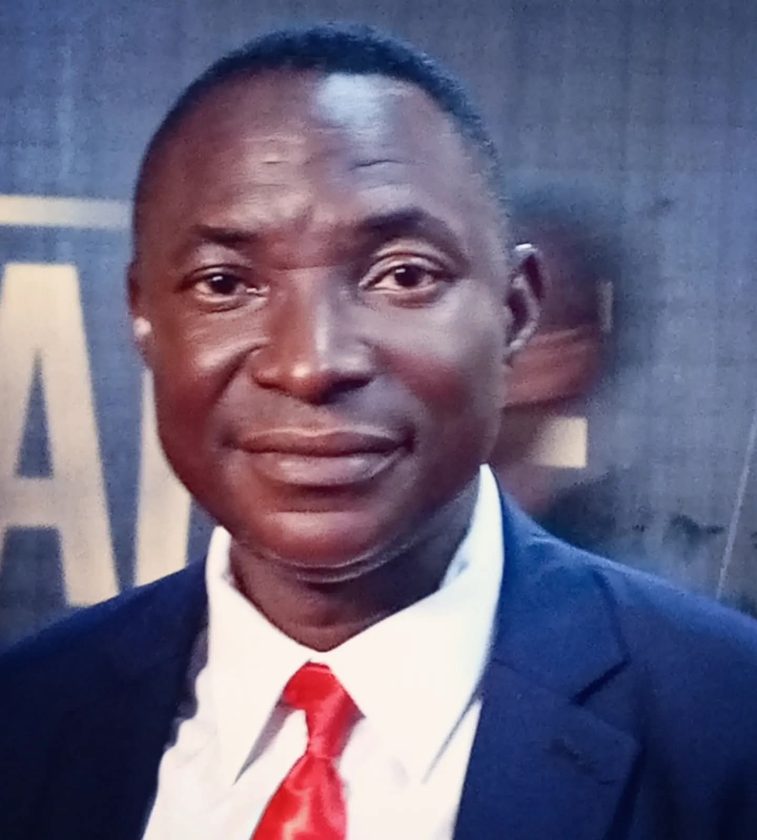By Fred Chukwuelobe
I spent my early morning today explaining to a friend of mine who was a passenger of AirPeace Airlines whose flight was delayed and he missed his appointment. He was so angry and he poured every angry insults he could conjure on the nation’s number one flag carrier. I calmed him down and took time to explain to him why flights are either delayed or cancelled. I am happy he eventually understood the issues after my explanation. I have, therefore, decided to put down in writing what I told him in the overall interest of the flying public who may be affected at some point. I must emphasize that I write these based on my experience as a frequent flyer and as an aviation enthusiast.
Before that, let me recall that the Nigerian Metrological Agency (NiMET) recently issued a weather warning. In it, the agency said harmattan haze would bring about cloudy conditions, which would affect scheduled flights leading to delays and cancellations.
Let me be clear that AirPeace or any airline for that matter cannot intentionally delay or cancel any flight without sufficient reasons. It is a business concern out to make profit and grow. For any flight it delays or cancels, it loses money.
Having said that, let me add that there are many factors which could combine to force an airline to delay or cancel a flight. Let’s take the major ones:
1. Force majeure.
It is a French term that literally means “greater force.” It is related to the concept of an act of God, an event for which no party can be held accountable, such as a hurricane or a tornado.
Other examples are war, industrial action, VIP movement, equipment failure, hazy cloud, heavy rains, storms, etc.
2. Shortage of forex.
The major challenge facing airlines now is the scarcity of forex. Airline business is dollar domiciled and the fluctuations of the local currency against the USD is forcing airlines to ground aircraft because they can’t access forex to carry out the mandatory “C” check. The “C”check is a compulsory maintenance procedure which an aircraft must undergo after a certain number of hours of flying.
There are four main types of aircraft maintenance checks that are carried out regularly. These checks are known as A, B, C, and D, each more extensive than the last. A and B checks come under Line maintenance or Light Checks, while C and D checks are categorized under Base or Heavy maintenance.
Most of the checks have full dollar component and are done overseas. Meanwhile, tickets are sold in local currency.
Because many can’t go for “C” check because they cannot source forex, they ground the affected aircraft, thus leading to shortage of operating aircraft.
3. Bad weather.
It is a common occurrence at certain times of the year for weather to turn inclement and making it unsafe for flights to take off or land. If this becomes the case, no airline or pilot will put an equipment into the skies. Apart from the safety of the passengers, the equipment is also at risk. It is the primary duty of airlines to ensure the safety of their passengers – It is their number one priority. So, if the weather is not favorable before departure, or before landing, a flight is delayed.
If the crew runs out of flight time, civil aviation rules demand that another crew be brought in to replace the tired ones. If that is not possible, the flight is cancelled.
4. VIP movement
If the president is flying a particular route, the airspace is closed for his take off and landing. It is usually done in such a manner that delays of departing or arriving aircraft are minimized. However, in our country where leaders and public officers have shown penchant for carelessness, this is not always the case. If an aircraft is held up from either departing or arriving, it causes delays on all the routes that particular equipment is to service that day.
5. The Apron.
The holding point where aircraft are parked for quick turnaround and for departures are too small at the General Aviation Terminal (GAT) otherwise known as Murtala Muhammed Airport local wing 1 and the newly-commissioned international wing It then means that if a departing aircraft does not have sufficient space to taxi preparatory for take off, it is delayed. Again, the delay spills over to all the routes that particular aircraft will service that day.
6. Equipment failure.
There could be a sudden need to service an aircraft or faults could develope or be discovered at any point. If that happens, there is a need to rectify the fault(s) before the aircraft takes to the skies again. If this happens, the flight is delayed or could be cancelled. If there’s no aircraft to be deployed as a substitute, the flight is delayed or cancelled.
As stated earlier, Aircraft parts are sourced from overseas and in dollars. If the needed parts are not in stock, the aircraft is taken off the fleet and the effect is reduction in fleet size and delays.
7. Congestion at take off points. The smallness of the Apron affects Aircraft taxi, queuing for departure. Before a pilot taxis, queues up and aligns on the runway ready for take off after clearance by the control tower, he has to navigate the small apron and avoid coming into contact with other aircraft. A particular flight might finish its boarding processes, ready to depart, but cannot turn nor be pulled back if there’s traffic. It would have to wait to be cleared for taxi before take off. If this happens, there’s a delay. The delay affects schedule.
8. Sunset Airports
There are other factors which could cause delays or cancellations. It is important to note that if a particular aircraft has been scheduled to operate four routes in a day, any delay at any departing airport would have a spiral effect on all the other routes. Hence, delays and cancellations occur.
If an aircraft is caught up in an airport that is a sunset one, and which does not have night landing facilities, while it is waiting for weather to improve for take off or landing, it may be delayed and not depart before dusk. If this happens, that service is cancelled. This will also affect the following day schedules, which inadvertently lead to delays.
There are others factors which force an airline to delay or cancel flights. These factors occur in the world of aviation and not just Nigeria and not restricted to AirPeace.
I have been on a flight from London Heathrow to Lagos enroute Dubai. In Dubai, that leg was cancelled due to bad weather. Passengers were put in hotels and the flight rescheduled.
This brings me to another important aspect of the airlines operations: crowd/passenger management.
Because passengers suffer varying degrees of inconveniences when delays or cancellations occur, it behoves the management of the airlines to have properly trained staff and especially supervisors whose job it would be to manage passengers’ anger and frustrations. This is one area I would like AirPeace to pay more attention to.
I will cite a case of the supervisor at the Chinua Achebe Airport, Umueri, Anambra State, Mr. Igwe Chuks. He needs a complete retraining. He lacks the leadership skills needed to manage passengers’ anger. I have observed this half a dozen times, and I told him so.
For instance, I flew Anambra – Lagos on February 6, 2024. The weather was bad. The flight was delayed. While the passengers were waiting to be briefed by the airline staff, this particular supervisor was having a shouting match with his staff. He shouted on top of his voice that passengers were embarrassed. Eventually, he addressed the passengers in such a rude and unprofessional manner that caused many mouth agape.
He told the passengers, “ladies and gentlemen, the weather has not been favorable to us. We are watching it, and if it does not improve, we will have no option than to cancel the flight.” He said this so carelessly and nonchalantly, and walked away. Meanwhile, another airline addressed its passengers and offered to take them to the nearby Asaba airport as an alternative.
Irked by the unprofessional conduct of the AirPeace supervisor, I intervened. I called his attention to the manner he had addressed the passengers. Rather than take note and apologize, he told me pointedly that “I don’t work for you! You can’t tell me how to do my job! I have said what I said and if you don’t like it, that’s your business!”
Gosh!
This is one of the reasons passengers get agitated and angry when flights are delayed or canceled. This staff certainly needs a retraining. Like I told him, he is the first public relations person of the airline and what he does with the situation affects the larger image of the company he serves.
I told my angry friend this story and tried to explain to him that we are not wired the same way; that this particular staffer may be working for the airline, but that he does not represent the mission and vision of the company. My friend insisted he does and deserves to be told that.
Well, at least I got my friend to tone down his rhetoric against AirPeace Airlines. And I hope the management holds refresher courses from time to time to teach its staff how best to handle situations that arise from delayed or cancelled flights.
The supervisor at the Anambra airport needs such retraining badly. And I say this without equivocation.




